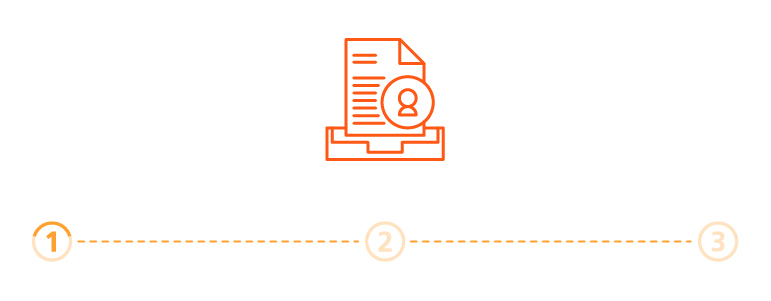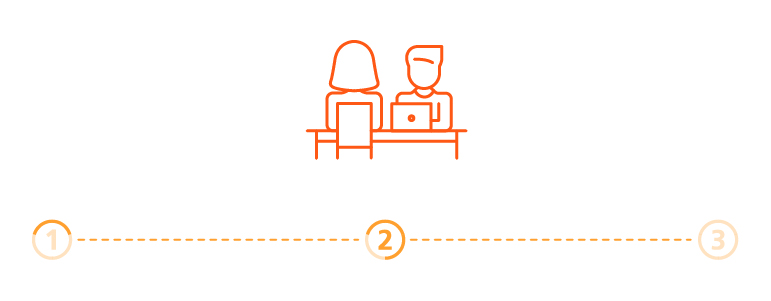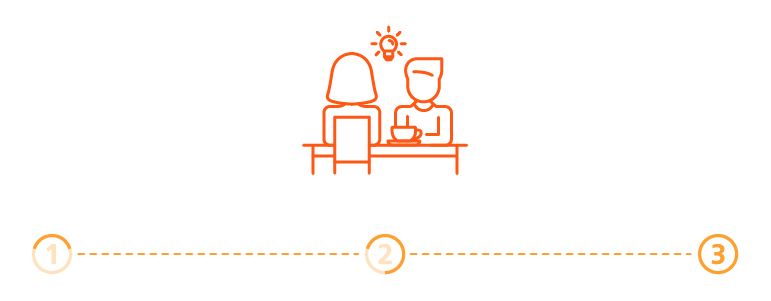Looking for a new job is exciting but challenging: it applies to youths having their debut on the market as well as to experienced professionals.
So, let's review the advice of HR experts, that help us write a complete and effective resume and experience a job interview with self-confidence and awareness.



10 tips for writing your CV
- Max 2 pages. To emerge from hundreds of CVs, you need to be concise and able to capture attention, beginning with your job title and summary.
- Latest jobs on top. Start with the most recent experiences: they best explain who you are today.
- Readable and common fonts. Consistently apply popular and legible fonts such as Arial, Tahoma or Verdana.
- Highlighted keywords. Bold and italics underline prominent concepts, but be careful: selecting all is the same as selecting nothing.
- Clear and well-defined goals. Make your targets explicit and emphasize experiences and skills suitable for achieving them.
- External viewpoints. Ask others, especially if subject matter experts, to read your CV: they will help you to grab details and nuances.
- Interests and hobbies. Volunteering and leisure activities define your personality in its most creative and altruistic aspects.
- Link to external resources. Personal webpages, articles, projects, portfolios etc. give a glimpse of your practical skills.
- Privacy disclaimer. You need to authorize for processing your personal data according to Legislative Decree 196/2003 and GDPR 679/2016.
- PDF format. It is more handy, stable and readable compared to Word.



10 tips for facing a job interview
- Go prepared. Before the meeting, study job profile and company. You'll find easier to figure out which cards to play.
- Show enthusiasm and interest. Empathy, dynamism, dedication make a difference compared to more cold and detached candidates.
- Keep honest and credible. A recruiter senses what lies behind certain statements. It's better an assertive but well-balanced approach.
- Think before answering. Don't get rushed! Express yourself calmly and naturally. Measure each word.
- Be aware. Show up with clear ideas on ambitions, goals, potential, but also abilities to be improved.
- Avoid negativity. Discard expressions suggesting, even implicitly, anxiety and troubles.
- Show humbleness. Would you hire a too self-confident person, up to looking haughty and arrogant?
- Make eye contact. Look your interlocutor into the eyes: it's the best proof of calm and self-assurance.
- Stay consistent and concrete. Listing skills is not enough: show them by bringing data, facts, projects, references...
- Enjoy it as an adventure! Whatever happens, a job interview is an experience to draw useful lessons from.



12 recurring questions during a job interview
- Tell me about yourself… Typical icebreaker question. It's so vague, however, that it could put you in difficulty.
- What are your strengths and weaknesses? It's helpful to understand how aware you are of your flaws and qualities.
- Why did you choose this course of study? Here you should convey that your life choices are aware and well-informed.
- Tell me about your dissertation. A recurring question for recent graduates.
- Which classes did you like the most at University? This question too is typical for those fresh out of university.
- Where do you see yourself in 5 (or 10) years? At every stage of your career, focus a long-term perspective.
- Tell me about your work experiences. Here you should highlight responsibilities assumed and achievements.
- Why would you choose our company…? The answer requires a careful study of the company profile.
- ...and above all why should we choose you? Here you should explain why your skills meet company needs.
- Which are your carreer prospects? Answering requires to have clear economic and professional goals in mind.
- How are you looking for a job? Recruiters often ask candidates if they are actively seeking employment.
- How do you spend your free time? Interests and hobbies also reveal key traits of our personality.


